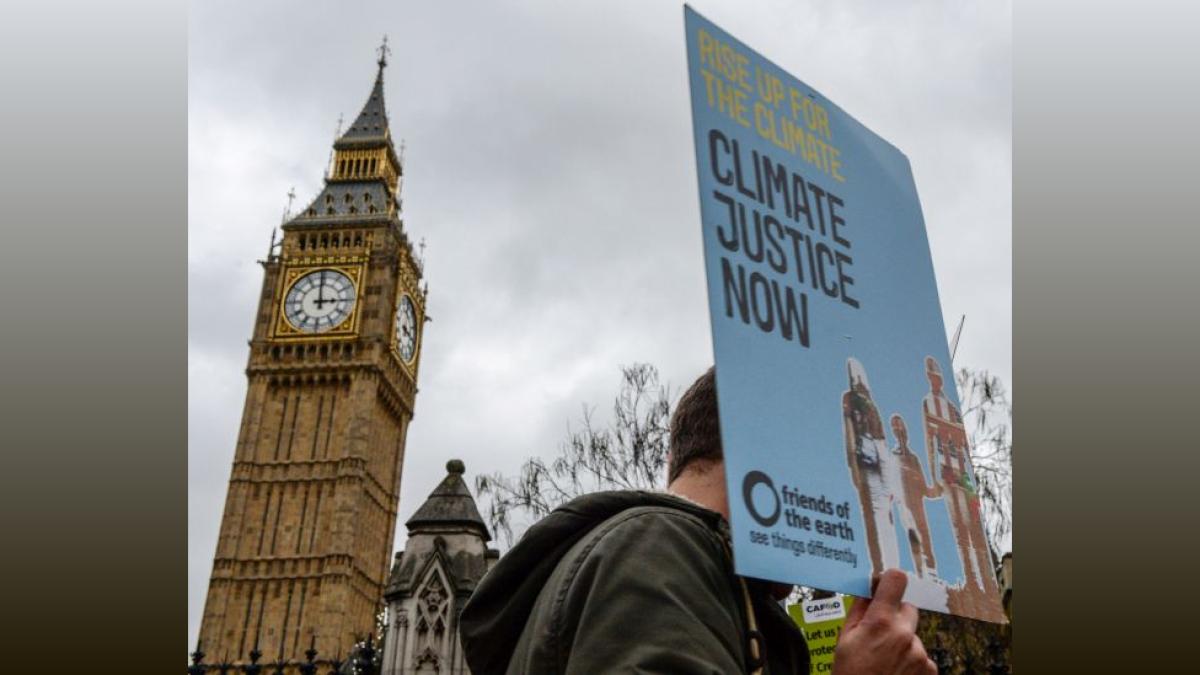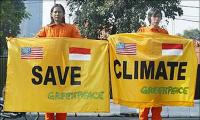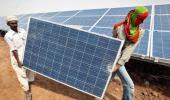Climate Finance Needs to Rise Fivefold by 2030: Report
Global climate finance hit USD 1.5 trillion in 2022, but needs to increase fivefold by 2030 to meet climate goals, according to a new report. The report highlights the need for increased investment in combating and adapting to climate change, especially in developing countries.

New Delhi, Nov 1 (PTI) Global investment in combating and adapting to climate change reached nearly USD 1.5 trillion, doubling between 2018 and 2022, but it must increase at least fivefold by 2030 to limit warming to 1.5 degrees Celsius, according to a new study.
The "Global Landscape of Climate Finance 2024: Insights for COP29" report, published by global think tank Climate Policy Initiative (CPI), said climate finance currently represents only 1 per cent of global GDP, far short of the required level.
Emerging markets and developing economies (EMDEs) may need around 6.5 per cent of their GDP by 2030 to meet climate goals.
"While global climate finance has made some strides, a much more ambitious, cohesive, and effective approach is essential to address the vast funding gap," said Barbara Buchner, CPI''s Global Managing Director.
"The data from CPI's Global Landscape report leaves no doubt that investment needs to scale across all fronts -- domestically, internationally, and across sectors -- to reach our mutual climate goals. COP29 is an opportunity to establish clear, collaborative commitments to finance the transformation needed for a sustainable future."
Annual climate finance flows rose from USD 674 billion in 2018 to USD 1.459 trillion in 2022. However, a fivefold increase is still needed to reach the USD 7.4 trillion required annually through 2030 to limit warming to 1.5 degrees Celsius, the report said.
Alarmingly, fossil fuel investments continued to rise globally throughout 2023 and 2024, surpassing USD 1 trillion despite global commitments to reduce fossil fuel investments. Subsidies for fossil fuel consumption in emerging economies increased fivefold during the same period, it noted.
At the UN climate conference in the UAE in 2023, countries reached a historic agreement to transition away from fossil fuels.
At this year's UN climate summit in Baku, Azerbaijan, countries are expected to agree on a new climate finance target that developed countries need to provide to developing countries, beginning in 2025, to combat and adapt to climate change.
The CPI's report warns that economic losses by 2100 could be five times greater than the climate finance needed by 2050 to stay within the 1.5-degree Celsius limit.
The report also said that adaptation finance more than doubled from 2018 to 2022, reaching USD 76 billion. However, annual adaptation flows have reached just one-third of the volume needed each year from 2024 to 2030 in EMDEs alone.
According to the United Nations Framework Convention on Climate Change (UNFCCC), adopted in 1992, high-income, industrialised nations -- which have historically benefited from industrialisation and contributed most to greenhouse gas emissions -- are responsible for providing finance and technology to help developing countries combat and adapt to climate change.
These countries include the United States, Canada, Japan, Australia, New Zealand, and EU member states such as Germany and France.
Developing and poorer countries view an ambitious new climate finance goal as crucial to increasing climate action. They argue that expecting them to do more, especially when many are still grappling with poverty and inadequate infrastructure amid worsening climate impacts, undermines the principle of equity.
The "Global Landscape of Climate Finance 2024: Insights for COP29" report, published by global think tank Climate Policy Initiative (CPI), said climate finance currently represents only 1 per cent of global GDP, far short of the required level.
Emerging markets and developing economies (EMDEs) may need around 6.5 per cent of their GDP by 2030 to meet climate goals.
"While global climate finance has made some strides, a much more ambitious, cohesive, and effective approach is essential to address the vast funding gap," said Barbara Buchner, CPI''s Global Managing Director.
"The data from CPI's Global Landscape report leaves no doubt that investment needs to scale across all fronts -- domestically, internationally, and across sectors -- to reach our mutual climate goals. COP29 is an opportunity to establish clear, collaborative commitments to finance the transformation needed for a sustainable future."
Annual climate finance flows rose from USD 674 billion in 2018 to USD 1.459 trillion in 2022. However, a fivefold increase is still needed to reach the USD 7.4 trillion required annually through 2030 to limit warming to 1.5 degrees Celsius, the report said.
Alarmingly, fossil fuel investments continued to rise globally throughout 2023 and 2024, surpassing USD 1 trillion despite global commitments to reduce fossil fuel investments. Subsidies for fossil fuel consumption in emerging economies increased fivefold during the same period, it noted.
At the UN climate conference in the UAE in 2023, countries reached a historic agreement to transition away from fossil fuels.
At this year's UN climate summit in Baku, Azerbaijan, countries are expected to agree on a new climate finance target that developed countries need to provide to developing countries, beginning in 2025, to combat and adapt to climate change.
The CPI's report warns that economic losses by 2100 could be five times greater than the climate finance needed by 2050 to stay within the 1.5-degree Celsius limit.
The report also said that adaptation finance more than doubled from 2018 to 2022, reaching USD 76 billion. However, annual adaptation flows have reached just one-third of the volume needed each year from 2024 to 2030 in EMDEs alone.
According to the United Nations Framework Convention on Climate Change (UNFCCC), adopted in 1992, high-income, industrialised nations -- which have historically benefited from industrialisation and contributed most to greenhouse gas emissions -- are responsible for providing finance and technology to help developing countries combat and adapt to climate change.
These countries include the United States, Canada, Japan, Australia, New Zealand, and EU member states such as Germany and France.
Developing and poorer countries view an ambitious new climate finance goal as crucial to increasing climate action. They argue that expecting them to do more, especially when many are still grappling with poverty and inadequate infrastructure amid worsening climate impacts, undermines the principle of equity.
You May Like To Read
TODAY'S MOST TRADED COMPANIES
- Company Name
- Price
- Volume
- Vodafone Idea L
- 8.10 (+ 18.94)
- 352105814
- GTL Infrastructure
- 1.50 (+ 7.14)
- 20982285
- G G Engineering
- 0.90 (+ 11.11)
- 20091512
- AvanceTechnologies
- 0.54 ( -8.47)
- 18780688
- YES Bank Ltd.
- 17.33 (+ 2.61)
- 14468025







 © 2025 Rediff.com India Limited. All rights reserved.
© 2025 Rediff.com India Limited. All rights reserved.